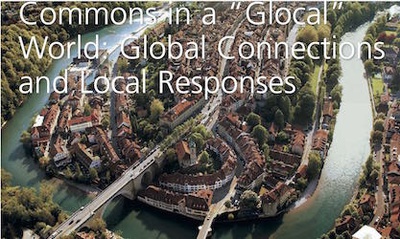RHN 82/2015 | Call
Panel Organiser: Maïka De Keyzer (Utrecht University)
IASC regional conference (Europe) “Commons in a “Glocal” World: Global Connections and Local Responses”
10–13 May 2016, Bern, Switzerland
Deadline for submissions: 1 October 2015
IASC regional conference (Europe)
“Commons in a “Glocal” World: Global Connections and Local Responses”
Panel proposal:
Are all commoners equal?
The impact of different distributions of power and social inequalities within rural communities engaged in collective action on sustainability and resilience within the Premodern era.
Historical institutions for collective action have a track record of successful management of natural resources in Premodern Europe. In an increasingly urbanised, commercialised and exploited world, these institutions were able to reduce risks and costs, while maintaining a sustainable management of the natural environment. Al throughout Europe case studies have shown that these institutions can endure for centuries and can prevent a tragedy of the commons from happening (Ostrom, 1997; De Moor, 2009; Winchester, 2008; Lana Berasain, 2008).
A bottom up management and regulation of the commons has been pinpointed as one of the vital aspects in obtaining this ecological and social success. Rules were not imposed top down, but were formed from the grass roots level upwards. The involvement of the community of users in managing and regulating the commons and distributing the benefits towards the different strata within rural communities has been a much debated topic. Who was exactly involved and what was their level of impact on the decision making within the community? Was it necessary for all the community members to have an actual vote or were village representatives enough to create successful rules? (Haller et al, 2015; Agrawal, 2005) This debate deserves more attention and especially from a historical point of view. Has the concept of participation and decision making evolved over time?
In addition, historical case studies have shown that the functioning and level of sustainability of the commons could diverge quite significantly, because of divergent social constellations and institutional frameworks. While some societies include practically the entire village community in the common pool institutions and share the ecological benefits among the different social strata, others have a more exclusive constellation. Within this panel we will focus on the social distribution of power within communities, the actors behind the common pool institutions and the impact thereof on the functioning of the commons and the level of sustainability in Premodern Europe.
We aim to receive papers on the following subjects:
- The (evolution of the) participation level of community members in common pool institutions
- The impact of polarised or equitable communities on the distribution of ecological benefits among community
- The impact of external factors on the participation level within the commons
- Institutional change because of societal evolutions
- The link between sustainability and participation level
- The causes behind exclusive and inclusive institutions
- Social stratification of excluded groups and the effect upon their social position within society
Researchers interested in participating in the conference are invited to send their abstracts (c. 500 words) before 1 October 2015 to Maïka De Keyzer (M.dekeyzer@uu.nl). Candidates will be informed of the selection and a possible acceptance of the session by the end of 2015.
For more information on the conference in Bern: http://www.anthro.unibe.ch/
